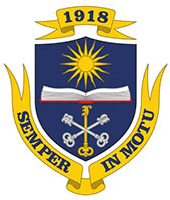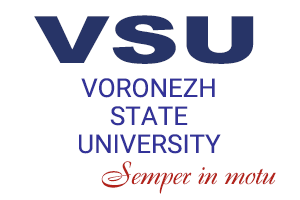Yet another wave of VSU graduates is about to leave their alma mater and face the challenging path of professional self-determination. What awaits them in the modern fierce and beautiful world? What skills should they develop? What should they pay attention to when looking for a job? These, among others, were the questions that VSU Press Service asked Irina Veretennikova, director of the South macroregion division of HeadHunter.
Learn how to learn
Every spring, more university graduates arrive on the labour market, and hence, it is vital that they should be willing to learn. Today, employers are more interested in the ability of their prospective employees to learn, their eagerness for life-long learning, rather than what is in their diplomas or specialisations. What students acquire at universities is theoretical knowledge, while employers require them to have certain practical skills. One should be both willing and able to learn all the time, which means that it is important to know, how to work with information, as well as how to search for information and analyse it. Another important skill is multitasking. We are now gradually recovering from the economic crisis, so it is very important for university graduates to be able to work not only within the scope of their profession, but to perform various other tasks. We should understand that within the next 5–10 years, every job will require programming skills, as every professional sphere will include working with computer software. Hence, those employees who can adapt the software to their own needs will be the most efficient.
Speaking foreign languages is a must
It is also very important to be multilingual and multicultural. There was a time when a lot of companies required their employees to speak foreign languages, although they couldn’t even use this skill in their work. Then the situation changed, and knowledge of English was required only by those companies which actually had international partners. Today everything is quite different. There are a lot of people who, irrespective of their employer’s needs and requirements, understand that foreign language knowledge is a must, an essential component for personal growth. And employers highly praise people who make such a choice. HeadHunter, for example, has no English-speaking clients in Voronezh. But when I interview people for a position of a marketing specialist, and one of the applicants says that she attends English classes, so that she can read professional literature in English to be aware of the latest trends, - this may well influence my final decision.
Experience
According to an internationally known HR thought-leader, Dr. John Sullivan, up to 70% of vacancies all over the world do not require previous experience. Technology and business are developing rapidly, and having a lot of experience does not necessarily mean that you will work effectively in a new place. Your effectiveness is determined by your ability to learn and utilise new information. Previously, we called such people enthusiasts. Today, I’d say it’s a matter of intelligence. These are people who care, who always want more. If a company employs such people, together they lead this company to success. This is now becoming a common idea all over the world. The key thing is you should never stop. Lewis Carrol’s Alice said that we must run as fast as we can, just to stay in place. This is very true for us today. It’s a good idea for young specialists to watch various webinars in their free time, read professional literature, and subscribe to business coaches on social networking sites.
Future professions
In 2014, HeadHunter published an anthology of the most promising spheres and professions “Atlas of new professions”, based on the results of a survey conducted among the most competent experts. The anthology lists about 60 professions that will no longer exist in 2030, and names about 200 new professions that will have appeared by that time. Some of them sound like science fiction.
- A GMO-agriculturer, for example, specialises in application of genetically modified products for agricultural purposes. Their job is to introduce new biotechnologies and obtain products with set properties. This profession is bound to appear in the nearest future, as nutrition issues are becoming more urgent.
- Another example is agricultural ecologist who specialises in waste disposal. Or rather develops methods for disposal of agricultural waste and soil recovery.
- A city-farmer designs and maintains agro-industries on rooftops in large cities. Vertical farming is expected to become very popular in the nearest future. In many countries rooftops are already being used for farming.
- Medical robot operator – a person who programmes diagnostic, theraputic, and surgical robots. Robotic surgery appeared back in 1980s, and this profession is already quite popular in other countries.
- A construction industry ecoanalyst examines construction projects in order to determine their possible effects on the environment, and consults companies about which construction materials will cause the least harm to the environment.
- A systems biotechnologist replaces out-of-date systems in various spheres with new biotechnological solutions.
Great theoretical knowledge or rich experience?
Research shows that 5% of professional knowledge comes from lectures and 10% – from professional literature, while 75% is the result of practical application of theoretical knowledge. So, I think, experience is more important than theory. Theory, theoretical knowledge, should serve as the basis for practical skills. In their CVs, a lot of people list various things and tasks they performed at their previous jobs. But this doesn’t give you any idea of what these people actually know, what they have learned. So, rather than give a list of things you had to do, it’s a good idea to tell what you actually learned at your previous work. Thus you will demonstrate that you are interested in the result, not in the process.
Employer and/or teacher
I don’t think that employers’ presence at the graduation exams is necessary. Employers are not interested in graduates’ theoretical knowledge. They what to now if they can apply this knowledge in real world, i.e. if they have the necessary skills. And this can be easily found out later, during the job interview. But in order to ensure that students develop these skills, university academic programmes should include courses designed by prospective employers. There are companies in Voronezh which send their members to give lectures in universities. When employers know what they want from their prospective employees, they understand that there is no point to criticise the existing academic programmes. Instead, they come to universities to give lectures and master classes on various topics that they consider important and interesting. I myself, for example, try to talk about the latest techniques to the students of HR management programmes of various universities in Voronezh, Rostov, and Krasnodar. Thus we manage to combine theoretical knowledge provided by teachers and our own experience. How do you organise this? There are only two ways: ether employers come to universities themselves, or universities ask employers to come.


